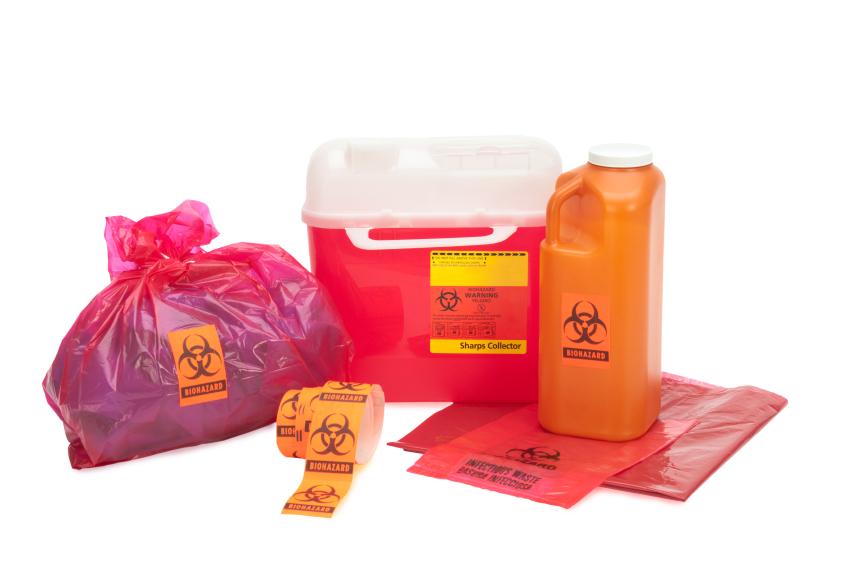Healthcare Hygiene Heroes: The Unsung Duty of Medical Waste Removal Service
Healthcare Hygiene Heroes: The Unsung Duty of Medical Waste Removal Service
Blog Article
The Importance of Correct Waste Disposal Practices
From the consequences of incorrect waste disposal on our setting to the long-term implications for future generations, the significance of embracing sustainable waste management practices can not be overemphasized. By checking out the ecological influence of careless waste disposal, the benefits of reusing initiatives, and the importance of area interaction in waste decrease efforts, a deeper understanding of why correct waste disposal methods are important arises.
Environmental Impact of Improper Disposal
Inappropriate disposal of waste presents a substantial hazard to the atmosphere as a result of its damaging results on ecological communities and human wellness. When waste is not correctly handled, it can bring about air pollution of the water, air, and soil, causing harm to various plant and animal varieties. click here. Chemicals and toxins from poorly disposed waste can permeate into the ground, contaminating groundwater resources and impacting the wellness of both wildlife and humans
Furthermore, the accumulation of waste in land fills creates greenhouse gases like methane, adding to climate adjustment and worldwide warming. Improper disposal practices also result in littering, which not just deteriorates the visual worth of the setting but can additionally damage wild animals via consumption or complexity.
To mitigate these environmental influences, it is vital for individuals and communities to embrace correct garbage disposal practices such as recycling, composting, and responsible contaminated materials disposal. By taking these steps, we can assist shield ecological communities, protect natural deposits, and safeguard human wellness for future and current generations.
Advantages of Recycling Programs
Consistently joining recycling programs offers numerous benefits for both the environment and society overall. Among the crucial advantages of recycling is the conservation of all-natural sources. By recycling products such as paper, plastic, glass, and steel, less raw products need to be removed from the planet, causing lowered logging, mining, and boring activities. This preservation of resources not only aids in keeping environmental equilibrium however additionally adds to lasting development.
In addition, recycling plays an important function in reducing power intake and greenhouse gas exhausts. The production of goods from recycled materials normally calls for less energy contrasted to manufacturing from virgin sources - medical waste removal near me. Therefore, the carbon footprint connected with the production process is dramatically lowered, assisting in the battle against environment adjustment
Additionally, recycling programs develop task chances in the recycling industry, promoting financial development and social well-being. By urging the recycling and reuse of products, these programs support a round economic climate that decreases waste generation and takes full advantage of resource performance, inevitably leading to a cleaner, greener future for generations to find.
Hazardous Waste Administration Guidelines
Carrying out effective dangerous waste administration standards is important for minimizing environmental and health threats associated with the improper disposal of unsafe products - click here. Proper handling, treatment, and disposal of dangerous waste are vital to avoid contamination of soil, water sources, and air
One trick standard is proper labeling of hazardous waste containers to make sure secure handling and transportation. Furthermore, centers should abide by strict storage space needs to avoid leaks, spills, or accidents that might jeopardize human wellness and the atmosphere. Regular training programs for workers on hazardous waste monitoring practices are also important to guarantee compliance with laws and promote a culture of safety and security.
Furthermore, unsafe waste needs to be set apart based on its residential or commercial properties to stop chemical responses that could result in unsafe situations. Carrying out a detailed waste tracking system can help keep an eye on the motion of dangerous materials from generation to disposal, making certain openness and accountability. By adhering to these guidelines diligently, services and sectors can contribute to a much safer and cleaner atmosphere for existing and future generations.
Community Involvement in Waste Decrease
To successfully deal with the environmental and health and wellness risks connected with contaminated materials management, engaging the community in waste reduction initiatives is vital. Area participation plays a crucial duty in promoting sustainable waste management practices and cultivating a culture of ecological responsibility. By educating citizens concerning appropriate waste segregation, reusing, and composting methods, neighborhoods can dramatically lower the amount of waste sent out to garbage dumps, consequently decreasing environmental contamination and saving natural deposits.
Neighborhood involvement in waste decrease programs likewise helps in raising understanding regarding the relevance of waste reduction and motivates people to embrace eco-friendly behaviors in their day-to-days live - medical waste removal near me. Joint initiatives between neighborhood authorities, waste management firms, and area members can bring about the execution of effective waste decrease methods tailored to the specific demands of each area or town
Moreover, community involvement promotes a feeling of ownership and responsibility among homeowners, equipping them to take positive actions in the direction of reducing waste generation and advertising a cleaner, much healthier atmosphere for future and current generations. By working with each other towards common waste decrease goals, neighborhoods can make a substantial effect on mitigating the unfavorable impacts of incorrect waste disposal techniques.

Future of Sustainable Waste Practices
The evolution of sustainable waste methods is critical for progressing ecological stewardship and resource conservation in the coming years. As the worldwide population remains to expand, so does the amount of waste go to this site generated (medical waste removal service). Conventional waste disposal approaches, such as landfilling and incineration, are no more sustainable in the long-term due to their substantial environmental impacts. Moving on, the future of sustainable waste techniques hinges on accepting a circular economic climate strategy, where sources are reused, recycled, or repurposed to lessen waste generation.
Technological developments play an essential duty fit the future of sustainable waste methods. Advanced waste sorting and reusing modern technologies can aid boost the efficiency of waste management procedures, permitting the healing of important resources from waste streams. Additionally, the adoption of eco-friendly materials and composting techniques can assist minimize the amount of organic waste winding up in garbage dumps, therefore minimizing greenhouse gas discharges.
Moreover, advertising customer awareness and education on correct waste segregation and disposal methods is vital for driving behavior change towards sustainability. By promoting a culture of waste reduction, recycling, and reuse, communities can jointly add to a cleaner and much healthier atmosphere for future generations.

Verdict
In conclusion, correct garbage disposal practices are crucial for lessening ecological influence and advertising sustainability. By executing reusing programs, handling harmful waste appropriately, and motivating community involvement in waste decrease efforts, we can function in the direction of a cleaner and healthier environment. It is necessary for people, governments, and organizations to focus on sustainable waste techniques for the future wellness of our earth.

From the effects of incorrect waste disposal on our setting to the long-lasting implications for future generations, the value of taking on sustainable waste management techniques can not be overemphasized. By discovering the environmental effect of reckless waste disposal, the advantages of recycling campaigns, and the significance of community engagement in waste decrease initiatives, a much deeper understanding of why correct waste disposal methods are vital emerges.
By informing residents regarding proper waste partition, reusing, and composting strategies, communities can dramatically lower the quantity of waste sent to land fills, therefore decreasing environmental pollution and preserving natural sources. (click here)
Relocating onward, the future of lasting waste methods lies in welcoming a round economic climate method, where resources are recycled, recycled, or repurposed to reduce waste generation.
Advanced waste sorting and recycling modern technologies can help enhance the efficiency of waste management processes, enabling for the recovery of useful resources from waste streams.
Report this page